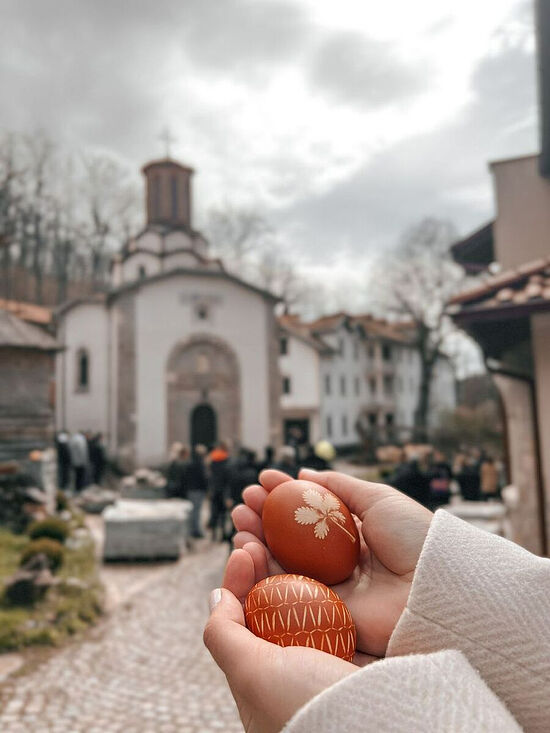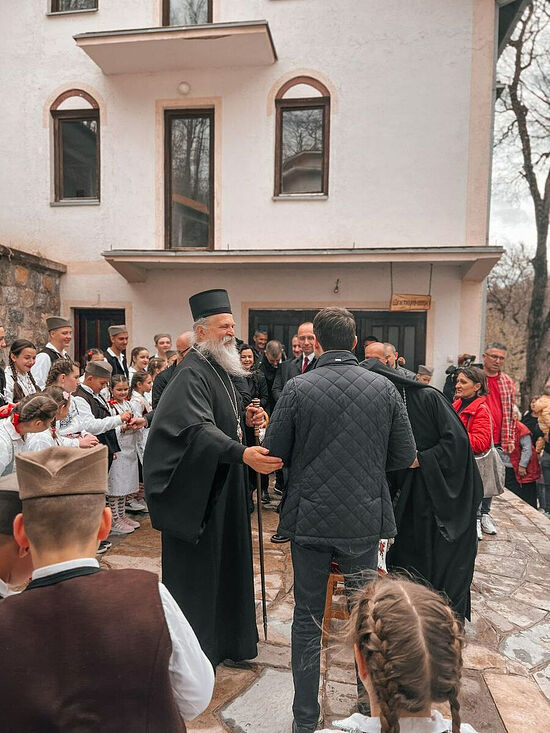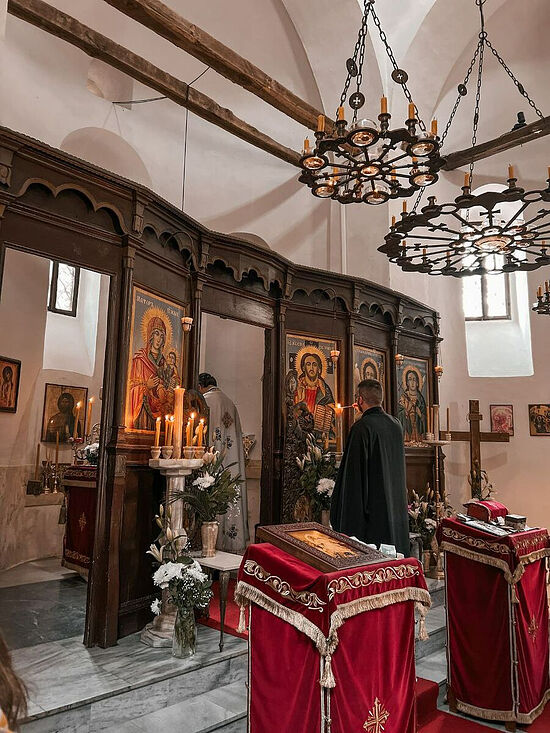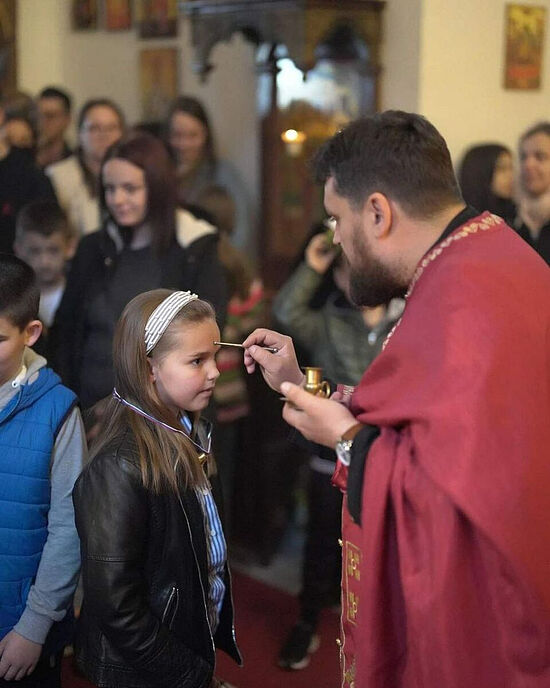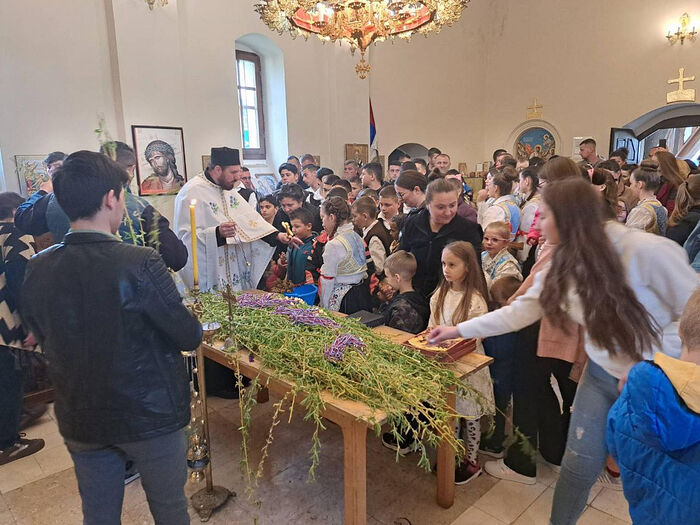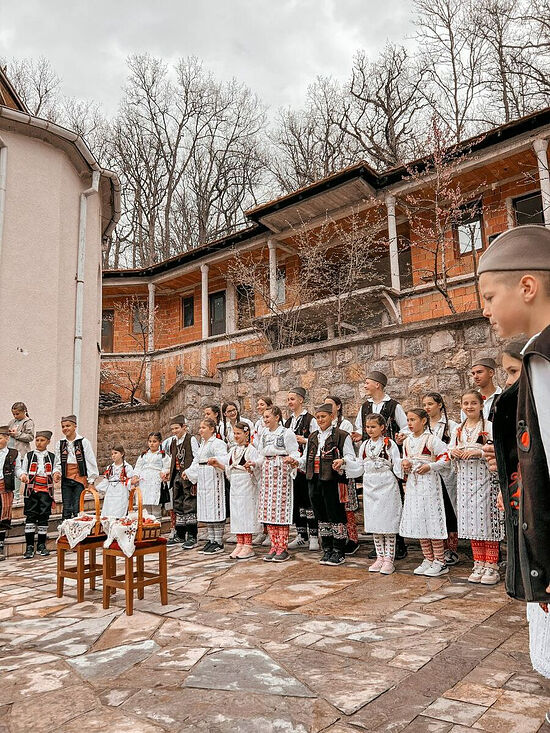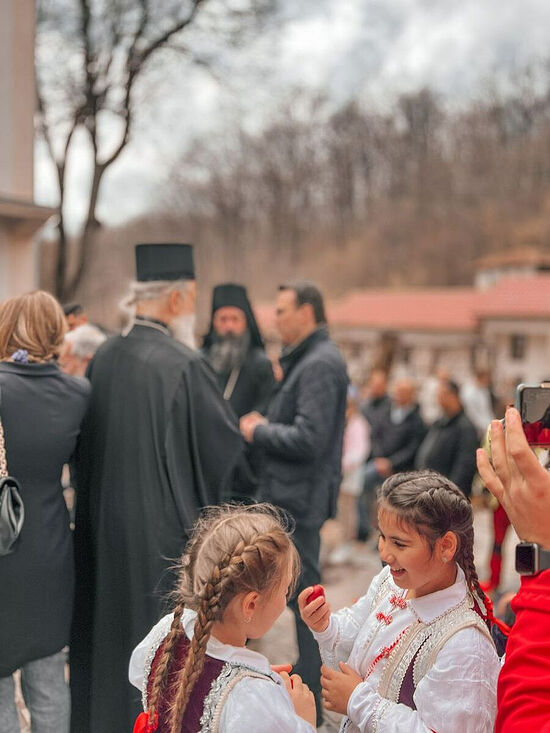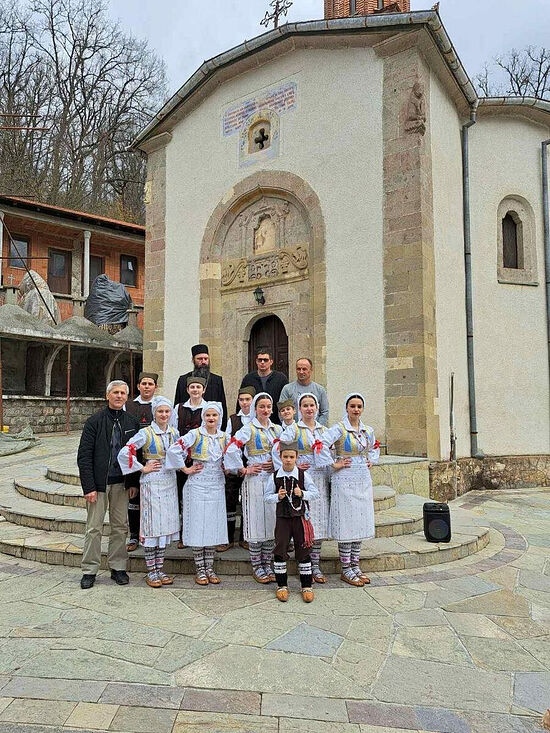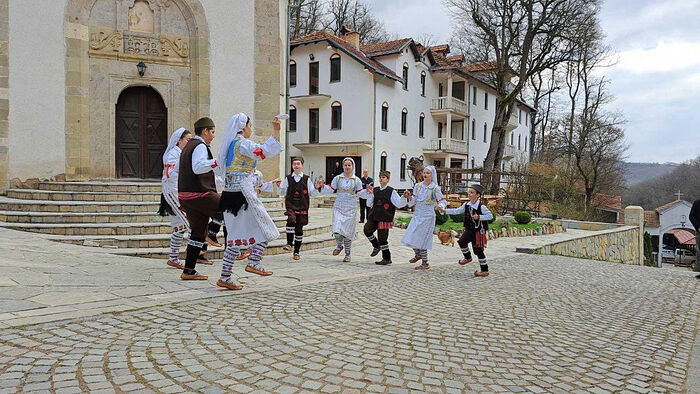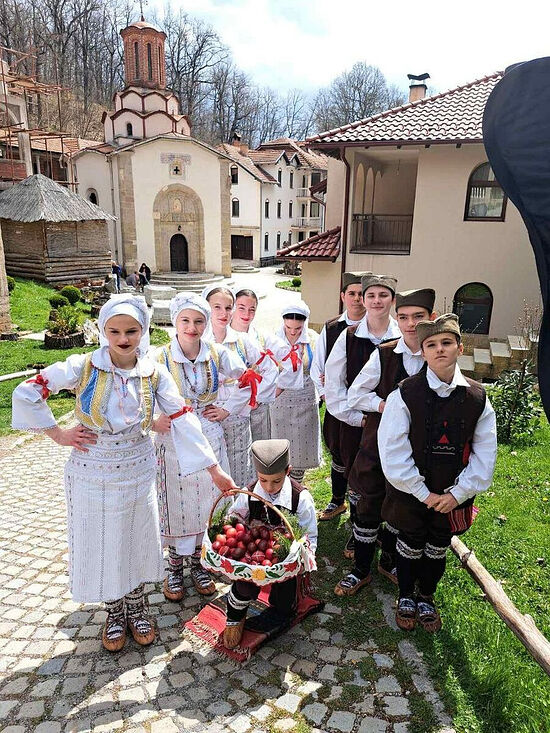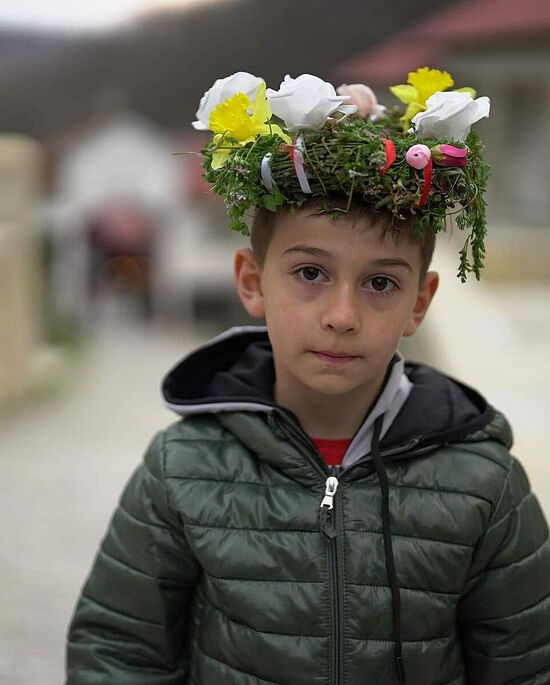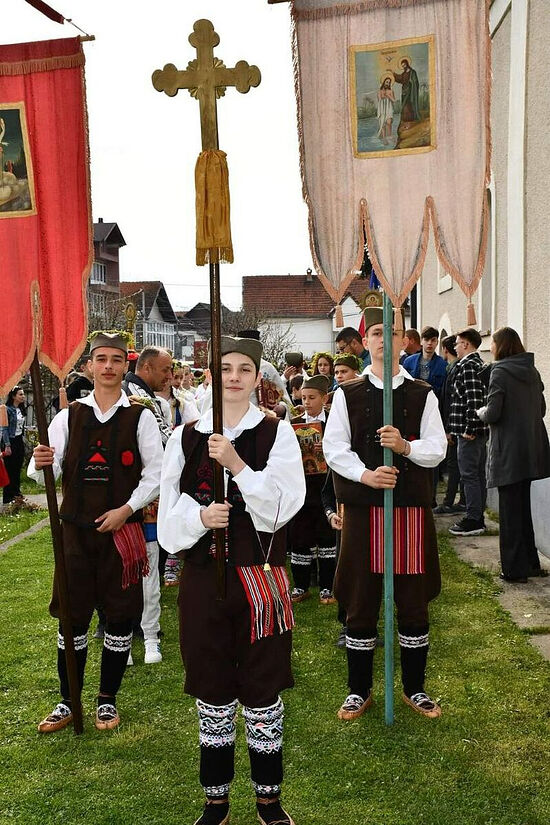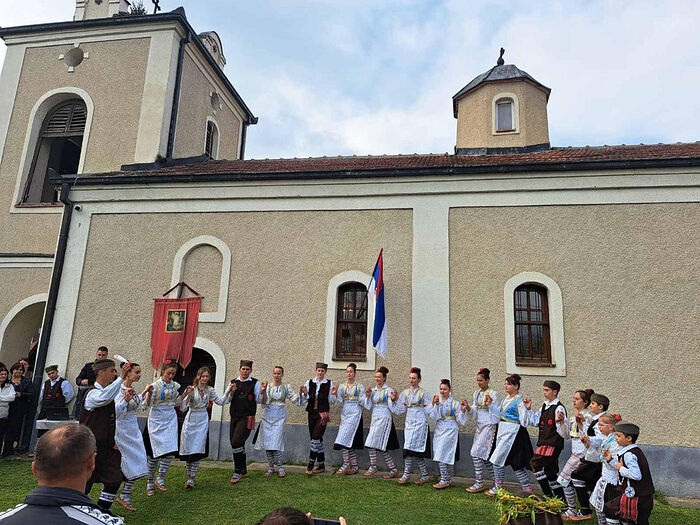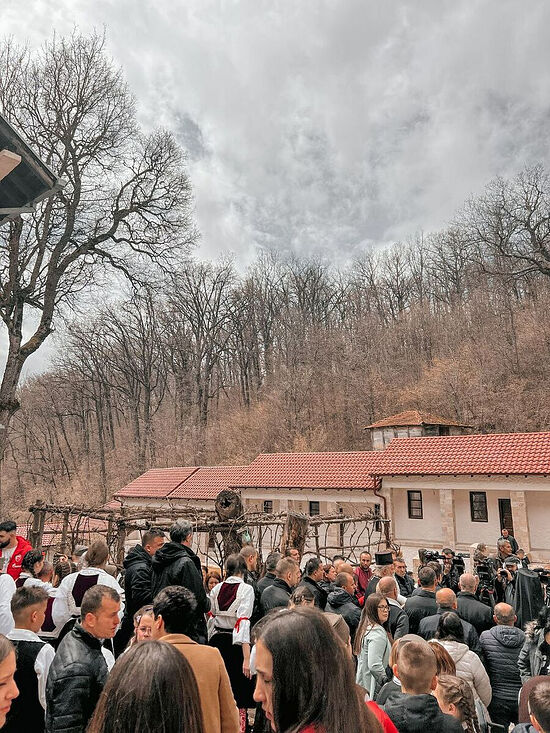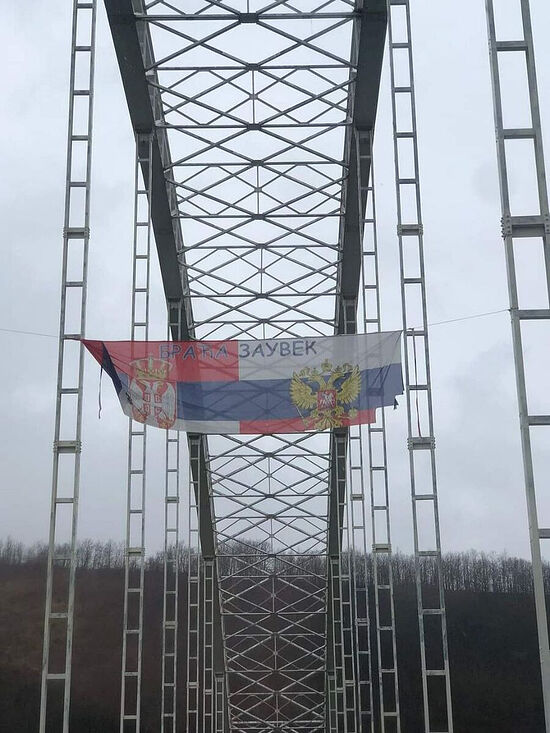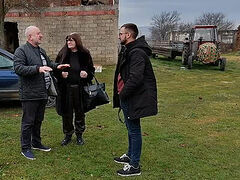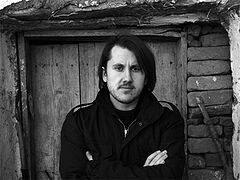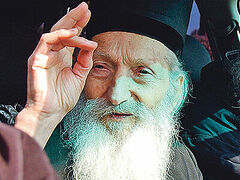As the great and dreadful Holy Friday came to an end, we journeyed to a hope-filled Sabbath, the day of quiet and rest. We anxiously awaited the feast of feasts, called Velikdan in our Kosovo Pomoravlje, or the Great Day. The Greatest.
The Resurrection of Christ has arrived in Kosovo, bringing together, uniting and returning the refugees, the ousted, and even the murdered to their homes, churches, and families
The Resurrection has come to Kosovo, bringing together, uniting and returning the refugees, the ousted and even the murdered to their homes, churches, and families. The Serbian villages are full of people, the churches replete with prayer life, and parents’ hearts are filled with joy. The wearied Kosovo raises its head, like a dew-drenched flower that opens up its petals toward the sun, and the people’s overflowing hearts and the lips are all united in the joyful greeting, “Christ is risen!”
The majority of Serbs traveled to meet the risen Christ in the holy monasteries, like they have always done in our area. Gracanica, the Patriarchal monastery of Peć, Visoki Dečani, Zočište, Draganac—these and other smaller monasteries were filled with the prayers and Paschal hymns of our compatriots.
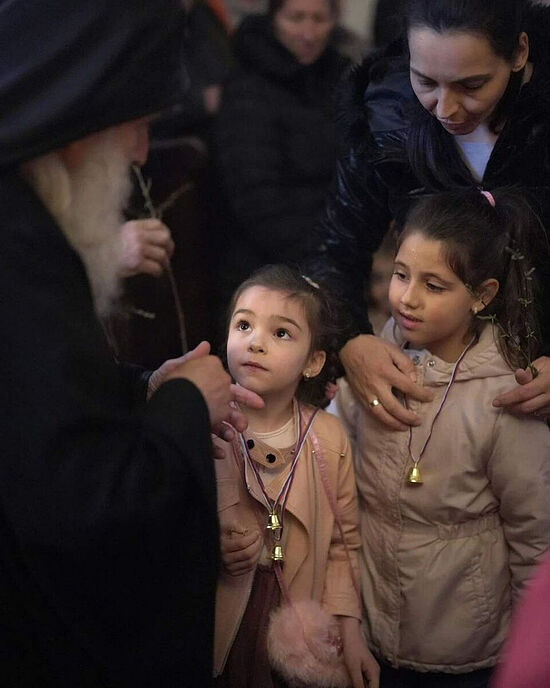 St. Lazarus Saturday in the Draganac monastery
St. Lazarus Saturday in the Draganac monastery
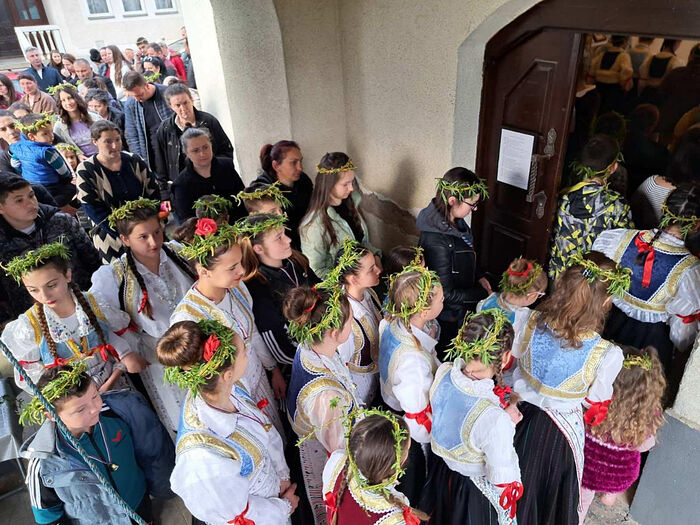 St. Lazarus Saturday in Vitina
St. Lazarus Saturday in Vitina
In Kosovo Pomoravlje, the locals, along with their beloved Bishop Hilarion of Novobrd, greeted Bishop Tedosije of Raška-Prizren and Kosovo-Metohija, in full accordance with the ancient tradition of hospitality inherent to our region. Our youngest ones were particularly excited; the children couldn’t wait to show Vladyka the dances they had learned, and even, if possible, get him to join them in a round dance; and sure enough, to have a chance to boast a little their festive Paschal attire from their native land.
For more than twenty years, the church in the village of Vitina has met the Resurrection of Christ quietly, without the noisy and merry celebrations so characteristic of us Serbs. This time around, the remaining Serbian villages of Vitina, disregarding the side-glances of some of their neighbors, did hold a celebration again. They danced Kolo, our famous communal dance, raised the Serbian tricolor flags, and cheerfully greeted one another. There were quite a lot of young people; soon it will be their turn to continue our struggle for the preservation of Orthodoxy in Kosovo. Judging by the mood of our young generation, this struggle won’t cease.
The following tradition exists in the village of Parteš: On Bright Monday, the villagers receive guests. It is an ancient tradition, born from the fact that this village used to hold village councils, or veche,1 of villagers residing in the surrounding area. So the residents of Parteš greeted their friends, relatives, and acquaintances (but who isn’t a relative, friend or acquaintance in Kosovo?) in their homes. The tradition remained, and practically every house solemnly hosts the guests; the children's laughter fills every corner, and it is joyful through and through. It’s odd though—the most frequent question we, the residents of Parteš, have had to answer was, “But aren't you afraid?” Aren’t we afraid to go to church, or gather in groups somewhere?
Should we fear the joy of the Risen Christ, just tell me? His Resurrection is the most important thing in the lives of all Orthodox Christians that have ever existed! And in death, too, by the way! This was what we have constantly talked about with our batiushkas, as this is the most important thing, and this same question was the focal point of our conversations with Vladyka Hilarion at the Draganac Monastery: Christ's Resurrection is our hope. Behind the façade of all the festivities, that joyful noise and festive spirit of the feast, we simply cannot, nor will, ever forget the main reason for this joy, bestowed upon us by our Lord Jesus Christ. It is His victory over death. So what then do we have to fear? Sure, according to the holy fathers, there is no Resurrection without suffering and death; and the Serbs of Kosovo and Metohija feel it all the time and understand, I think, the truth of the saints’ words perfectly well. There is no Christian without a cross; and all our misfortunes, provided we have a good attitude, will surely bring us to the triumph of Pascha. Adversity and suffering bring us closer to God—that’s the point. We also know what and Who is our hope, and we know and believe in His love for us and our land. The suffering of Christians in our land has lasted for centuries, but it is surely no reason for despair: Exiled, wounded, we keep going back not only to our land, but also to Christ, Who died and rose again for our sake.
There is no Christian without a cross, and all our misfortunes, provided we have a good attitude, will surely deliver us towards the triumph of Pascha
For the Serbs of Kosovo and Metohija, the Orthodox Russian people are a source of great support and hope. Geographically we are far from each other (well, by Serbian measure, of course. As for Russians, a thousand miles is no distance at all, I know that!), we feel your prayers and see your support. We are sometimes asked where the Kosovo Serbs receive their strength to fight for Kosovo. We reply: “It’s largely due to the Russians and Russia. Our brothers live there, you know? Brothers who, despite the hardships in their own home, find the opportunity and strength to help us as well. That's where we draw our strength.” We believe that if our peoples remain faithful to Christ and do not forget their Orthodoxy, all hardships will be overcome, for what power can oppose God Who loves us so? And so we address our Orthodox brothers and sisters in Russia with a joyful smile: “Hristos Voskrese! Hristos Voskrese!”

